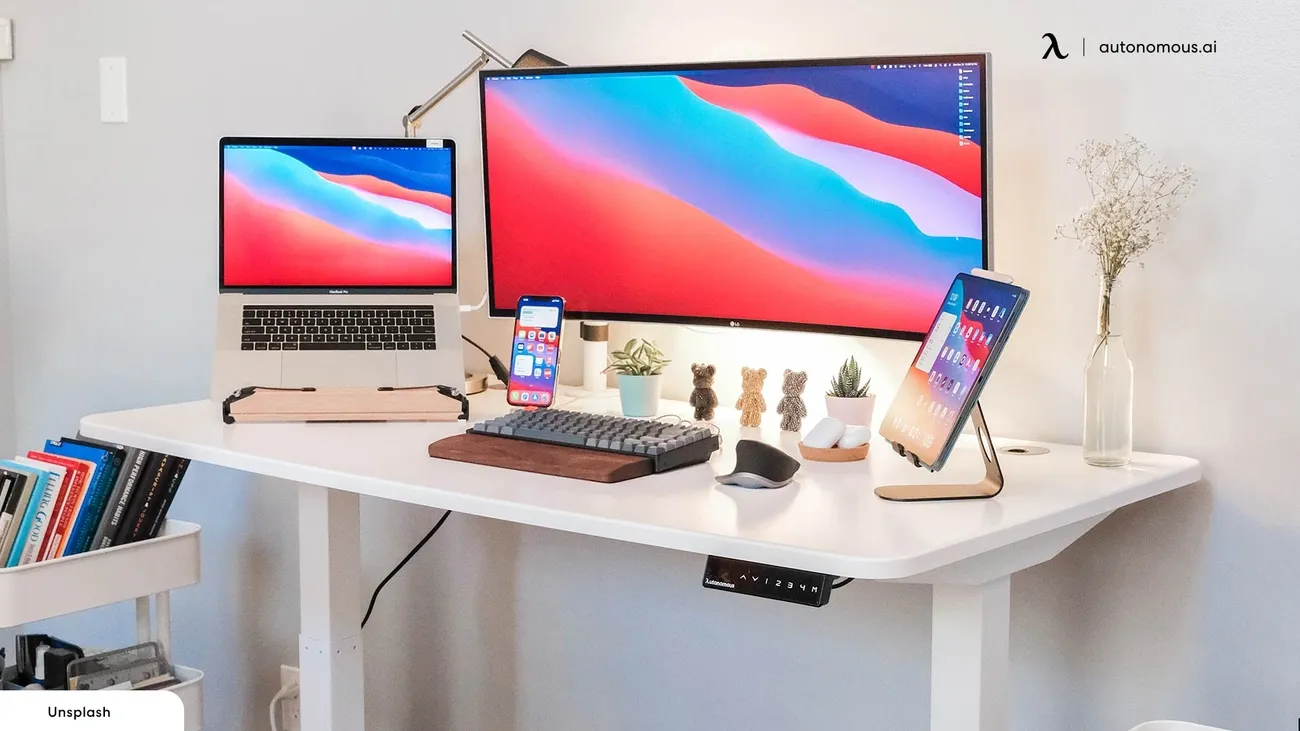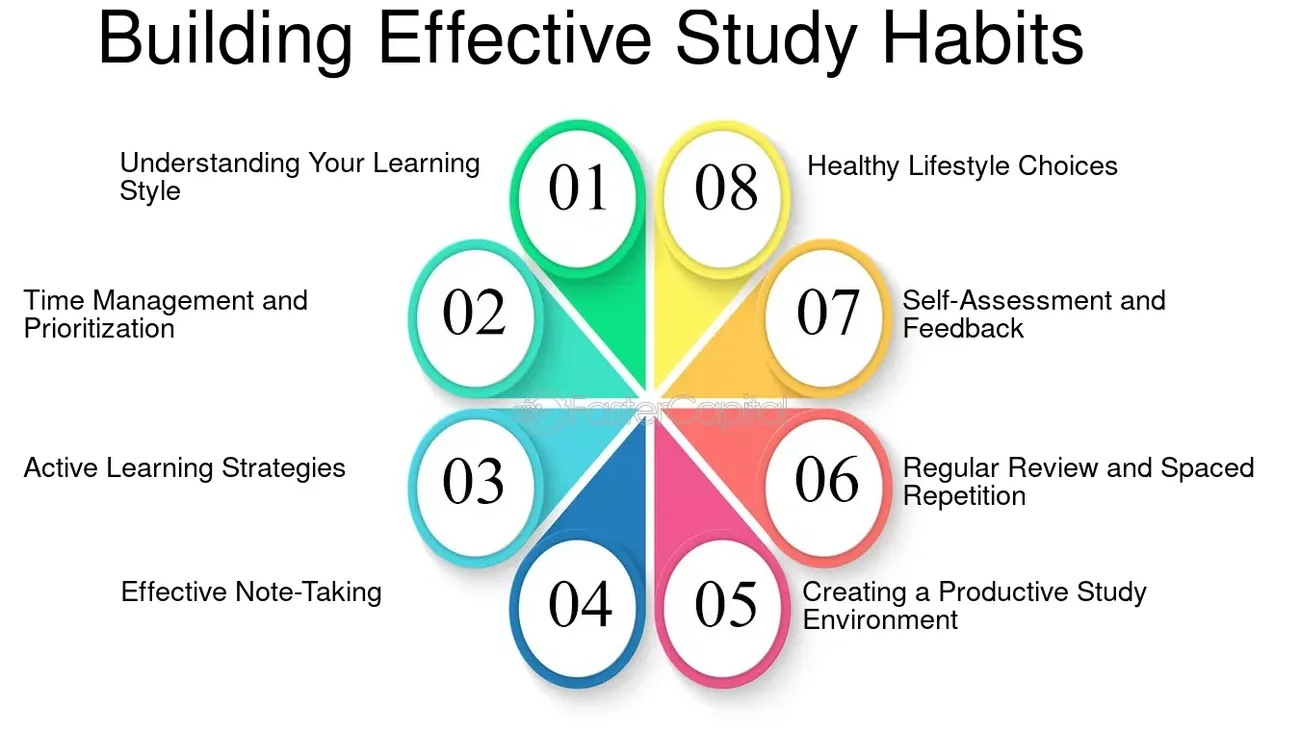How to Master Best Study Techniques: A Student’s Guide to Crushing Exam Stress
A 2019 study revealed a clear link between students’ grades and their sleep patterns . The most effective study techniques go beyond memorizing facts—they create the right conditions for your brain to thrive.
Exam stress can significantly impact our performance . Most students have experienced those late-night study sessions, staring at textbooks and struggling to retain information. Research proves that the right study methods can make a significant difference. Students who change their study environment show better recall performance . Taking strategic breaks between 5-60 minutes helps refresh the brain and enhances focus .
Stress does more than cause emotional strain—it reduces concentration and disrupts memory recall . This reality drives us to share both proven study techniques and practical stress management strategies for exam preparation.
Let’s take a closer look at creating the perfect study environment. We’ll explore eight research-backed study techniques that work and show how your daily habits can reshape your learning experience. These strategies will help you study smarter, not harder—whether you’re preparing for finals or planning your semester ahead.
Your path to academic success starts here!
Create the Right Study Environment

Image Source: Autonomous
Your study environment can make a huge difference in how well you learn. Research shows that students in positive learning environments learn better, stay motivated and participate more actively [1]. Let’s look at what makes a study space work.
Sleep, food, and focus: the foundations of effective studying
Getting 7-9 hours of sleep every night helps you study better [2]. Your brain doesn’t work well when you’re tired. Memory, creativity, and decision-making take a big hit [3]. Students who sleep less than 8 hours usually get lower grades than students who get enough rest [3].
Food is just as vital. Your brain needs the right fuel to work at its best. Blueberries, avocados, fish, nuts, and dark leafy greens help keep your brain healthy [4]. Research shows students who eat well do better on tests [3]. Students who follow dietary guidelines also tend to meet academic goals in math, reading, and writing [5].
Your study space’s effect on memory and concentration
The space where you study directly shapes how well you learn. Students studying in naturally lit environments score 25% higher than those in dim rooms [1]. Being comfortable matters – discomfort can pull your focus away and affect how much you learn [1].
Here’s what affects your brain function:
- Temperature: You learn best when it’s between 68-74°F [6]
- Lighting: Natural light helps your mood and cuts stress [1]
- Noise levels: Background noise can affect your focus by a lot [1]
- Organization: Clutter makes it harder to learn [1]
Cut distractions for better focus
Don’t fall for the multitasking myth. Research proves people just switch quickly between tasks instead of doing them together. This hurts performance on both tasks [7]. That’s why cutting out distractions while studying matters so much.
First, spot what distracts you and remove it from your workspace [7]. Digital distractions? Turn off notifications, use website blockers, or switch your phone to airplane mode [8]. You can also work with roommates or family to set up quiet zones at home [2].
Mind wandering? Keep a notepad close to write down random thoughts for later [7]. The key is to create a space that makes studying easy and keeps distractions away. This helps you learn better.
8 Best Study Techniques That Actually Work

Image Source: FasterCapital
Research-backed study techniques can dramatically improve your learning outcomes. These proven methods will help you retain information longer and understand concepts better.
1. SQ3R Method: Survey, Question, Read, Recite, Review
This five-step reading technique helps you grasp difficult material easily. Start by skimming headings and images. Then develop questions from these headings. Read the text while searching for answers. Next, recite key points from memory. A review within 24 hours will cement your retention. Research shows you can lose 80% of what you’ve learned without proper review [9].
2. Retrieval Practice: Test yourself, don’t just reread
Your brain needs active recall instead of passive rereading of notes. This method creates stronger neural connections that make future recall easier. Research proves retrieval practice works better than concept mapping for long-term retention [10]. Practice tests, flashcards, or explaining concepts without notes can help you achieve this.
3. Spaced Practice: Spread out your sessions
Learning works better when you spread it over time rather than cramming. Your brain works harder to recall almost-forgotten information, which strengthens memory pathways [11]. Scientists have studied spacing out study sessions since 1885, consistently proving its superiority for long-term learning [11].
Skyline Academic Resources offers detailed guides and tools that work well with these techniques. Ready to boost your study game?
4. PQ4R Method: Preview, Question, Read, Reflect, Recite, Review
This enhanced version of SQ3R adds reflection to connect new information with what you already know [12]. Complex academic texts become easier to understand when you actively involve yourself with the material [12].
5. Feynman Technique: Teach it to learn it
Nobel laureate Richard Feynman’s technique asks you to explain concepts in simple terms, as if teaching a child [13]. Simple explanations reveal your true understanding. This method helps you spot knowledge gaps and organize your thoughts better [14].
6. Leitner System: Smarter flashcard review
This clever spaced-repetition system organizes flashcards in boxes based on how well you know them [1]. Cards you answer correctly move to boxes you review less often. Wrong answers go back to the first box for frequent review. This helps you focus on challenging material [1].
7. Color-Coded Notes: Organize with visual cues
Colors boost attention and memory performance [15]. Use different colors for various types of information—red for key points, blue for definitions, green for examples. These visual connections improve exam recall [16].
8. Mind Mapping: Visualize connections between ideas
Mind maps start with a central concept and branch out to related ideas, showing how everything connects [17]. This method gets your visual, spatial, and kinesthetic senses working together. The result? More effective learning than traditional linear notes [18].
Boost Focus and Retention with Lifestyle Habits
Your lifestyle choices are the foundations of successful learning outcomes. Simple habits can improve your brain’s power to absorb and retain information.
Exercise before studying to activate your brain
Your brain works better when you exercise because physical activity increases blood flow. Research shows that 20 minutes of moderate-intensity exercise before studying helps you remember and focus better [19]. Students who memorized material while cycling remembered more words after 24 hours compared to those who stayed still [19]. Light activity during study sessions could help you learn better.
Why studying before bed helps memory
Sleep makes your brain remember things better when you study before bedtime. Scientists found that learning new information before bedtime helps you remember more compared to morning study sessions [20]. Your sleeping brain unites new information and tells your brain what’s important to keep [20]. This nighttime study method works really well for children and students who need help with vocabulary [5].
Healthy snacks that fuel your brain
Food choices affect how well your brain works. Some foods help you think better during intense study sessions. Berries, especially blueberries, help you pay attention and switch between tasks easily [3]. Dark chocolate makes your brain work better and fights mental tiredness [3]. Eggs packed with protein help you remember words better [3]. Nuts keep your brain healthy because they’re good for your heart [3]. You should mix complex carbs with protein like crackers and cheese or apples with nut butter to keep your energy steady during long study sessions [21].
Breaks and Stress Relief That Actually Help
Science proves that strategic breaks aren’t just nice to have—they’re essential to study effectively. Research shows that well-planned breaks between 5-60 minutes boost your energy, productivity, and focus [22].
Purposeful breaks vs. passive distractions
Every break isn’t equally beneficial. Social media scrolling drains rather than energizes you [6]. These activities overwhelm your prefrontal cortex and can become addictive [6]. Your breaks might work against you if you spend them staring at screens [23].
Quick stress busters: breathing, stretching, and more
These proven techniques can help you reduce stress quickly:
- Deep breathing: Take slow breaths through your nose, fill your chest, and exhale slowly through your mouth [22]
- Progressive muscle relaxation: Tighten, hold, then relax muscle groups from toes to head [22]
- Mini-meditation: A quick 2-5 minute session can calm your mind and sharpen focus [22]
- Physical movement: Simple exercises like jumping jacks or stretches help release tension [24]
How to use short breaks to reset your focus
The Pomodoro Technique recommends 25-minute work sessions with 5-minute breaks [25]. A newer study, published by NIH, found that our brains actively replay newly learned skills during breaks to strengthen memory [26]. Your breaks will work better if you change your environment and skip activities that need decisions [27].
It’s worth mentioning that breaks work best when you’re motivated—pick activities you truly enjoy [6].
Conclusion
Becoming skilled at effective study techniques revolutionizes your approach to learning and substantially reduces exam stress. Your environment, techniques, and lifestyle habits work together to create the best conditions for academic success. Research shows that simple changes make a big difference. Getting enough sleep and using retrieval practice instead of passive rereading can improve your retention and understanding.
The SQ3R Method, Feynman Technique, and spaced practice are powerful alternatives to ineffective cramming. Your brain runs on proper care through nutrition, exercise, and strategic breaks. Quick stress-busting techniques like deep breathing and mini-meditation sessions can reset your focus during tough study sessions.
Skyline Academic Resources provides advanced study resources and tailored learning tools to boost your academic trip. Their specialized tools add to the techniques we covered here and help you tackle difficult subjects.
Effective studying isn’t about working harder—it’s about working smarter. These evidence-based strategies will improve your grades, reduce anxiety, and build eco-friendly learning habits that last beyond your academic career. You’ll have a complete toolkit to face challenging exams with confidence rather than dread. Start by adding one or two techniques from this piece, then build your own study system that fits your learning style.
FAQs
Q1. What are some effective techniques to manage exam stress?
Some effective techniques include creating a proper study environment, using research-backed study methods like the SQ3R technique, practicing retrieval and spaced repetition, taking purposeful breaks, and incorporating stress-relief activities like deep breathing or mini-meditations.
Q2. How can I improve my focus and retention while studying?
To boost focus and retention, try exercising before studying, reviewing material before bed, eating brain-healthy snacks, and using active learning techniques like the Feynman method or mind mapping. Also, minimize distractions in your study space and take regular, strategic breaks.
Q3. What are some of the best study techniques that actually work?
Some of the most effective study techniques include the SQ3R method (Survey, Question, Read, Recite, Review), retrieval practice, spaced repetition, the Feynman Technique, and the Leitner System for flashcards. These methods have been proven to enhance comprehension and long-term retention.
Q4. How can I create an optimal study environment?
Create an optimal study environment by ensuring proper sleep (7-9 hours nightly), maintaining a nutritious diet, setting up a comfortable and well-lit workspace, and minimizing distractions. Consider factors like temperature (68-74°F is ideal), lighting (natural light is best), and organization of your study area.
Q5. What role do breaks play in effective studying?
Strategic breaks are crucial for effective studying. Short breaks of 5-60 minutes can increase energy, productivity, and focus. However, it’s important to take purposeful breaks rather than engaging in passive distractions. Use break time for quick stress-busting activities like deep breathing, stretching, or brief physical exercises to reset your focus.
